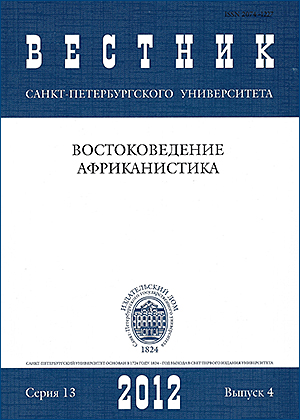Bribe and similar crimes in traditional Chinese law
Abstract
The article analyzes one of the aspects of the Chinese empire’s wide experience in counteraction to the corruption on the bureaucratic level. By the time of creation of the T’ang dynasty code “T’ang lь shuyi” (653) this experience had dated back centuries ago. Among six kinds of the crimes against property, stipulated by the T’ang criminal law, four were connected with illegal activities of the officials. Most intolerable among them which lead to the most severe punishment was so-called “taking bribe with subverting the law”. It consists in distorting a legal course of business by the authorized representative of an official for the benefit of somebody in order to obtain illegal profit from him. Some officials` crimes, connected with criminal enrichment, were considered in T’ang law as the nearest analogues of “taking bribe with subverting the law” and were penalized on the same basis. The variations of such punishments allow to classify some key elements of “taking bribe with subverting the law”, and also to evaluate ideological and psychological hierarchy of such elements.
Keywords:
Traditional societies, criminal law and culture, efficiency of officials
Downloads
References
Downloads
Published
How to Cite
Issue
Section
License
Articles of "Vestnik of Saint Petersburg University. Asian and African Studies" are open access distributed under the terms of the License Agreement with Saint Petersburg State University, which permits to the authors unrestricted distribution and self-archiving free of charge.





